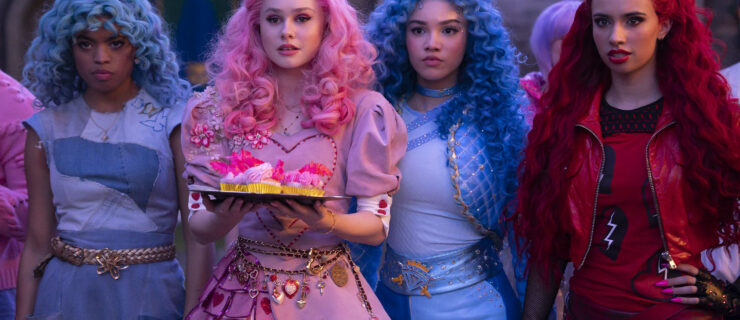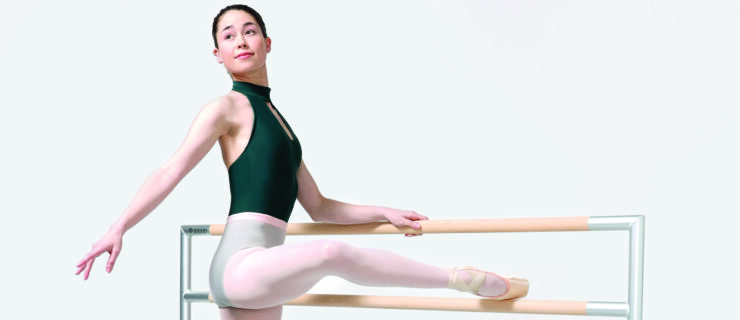Broadway's Youngest Producer Amanda Lipitz
Seven years ago, when Amanda Lipitz was a junior acting student at NYU’s Tisch School of the Arts, she, like most college kids, went home for Christmas break. But instead of lounging around, she and her friend Michelle Waranch embarked on a project to brighten the lives of sick patients in hospitals.
In two weeks, the girls raised an astonishing $25,000 and started a Baltimore-based not-for-profit called The Stained Glass Project. With the funds, they created books of inspirational quotes and original artwork and gave them to hospital chemo wards for free. “We really felt that if you have a positive outlook,” Amanda explains, “it does wonders for your health.”
When she returned to NYU, she told her classmates and professors about her so-called vacation. Her acting teacher, Louis Scheeder, responded by saying, “You’re going to be a producer.” He then turned to her classmates and announced: “Everyone pay attention, because we’re all going to be working for Amanda one day.”
Though he meant it as a compliment, she didn’t take it that way: “It was devastating because he was my acting teacher!” she laughs. “But it was the moment when I realized that other things were possible for me. I think that I was always destined to do what I’m doing; I just didn’t know how to do it or what it was.”
Amanda is bubbly and animated, not unlike Elle Woods, the heroine in Legally Blonde: The Musical, which she co-produced on Broadway this year. In 2005, she became the youngest producer on Broadway when she raised—get this—over a million dollars for the hit musical Dirty Rotten Scoundrels. When the show appeared on the Great White Way, Amanda was only 24.
A life-long musical theater lover (“I lived for Barbra Streisand when I was a little girl!” she raves), she started ballet at 4, and tap, jazz and modern soon after. In high school, she participated in a program at the Peabody Institute through Johns Hopkins University called ATY (for Artistically Talented Youth), and attended Buck’s Rock Summer Camp, an arts camp in Connecticut, where she caught the choreography bug. “I watched an older friend choreograph Grease and realized what the choreographer did—it was like the director but more fun!” she says. The following year, she was cast in the musical Working. “I didn’t have many rehearsals,” she explains, “so I was bored and needed stuff to do, and when the choreographer left camp unexpectedly, the director said, ‘Amanda, why don’t you just do it yourself?’ I was 14 and ended up choreographing this entire musical with 23 kids in it.”
Over the next few years, she choreographed (and performed in) all the musicals at camp and at school, and then headed to NYU because she “wanted to be around Broadway.” But she soon realized that performing wasn’t for her: “I saw how committed the other students were to acting, and I didn’t get it. I love theater, but there was a difference.”
After graduating in 2002 (and still unsure about her future), she attended a production of the musical The Last Five Years and was enchanted. She called the producer and he offered her a job as an assistant reading scripts, watching auditions and learning about theater finances—all of which she found more exciting than anything she’d done onstage. When she was offered the chance to raise money for Dirty Rotten Scoundrels, she dove in headfirst.
Hot off that show’s success, Amanda was invited to a reading of Legally Blonde: The Musical. “I was totally skeptical,” she says. “It was my favorite movie. I so identified with Elle—somebody who is kind of judged but then ends up being something completely unexpected to the people around her. But from the moment they started, it was joy to me.” A few days later, she got an offer to join the producing team, which she couldn’t refuse: “I was young and this was like my life!”
Amanda credits dance as her entry into producing: “Choreographing at camp is really where I found my producing bug, and identified my need to work with everyone on the stage.” But she admits that figuring out you’re interested in producing can be difficult—especially for young women, who are most often urged to perform. “When you’re young and female and you love musicals, no one says to you, ‘Hey, wanna be a producer or a director?’” she says, shrugging. So what’s her advice? “Play different roles in different productions. If you’re in high school, direct something and choreograph something and stage manage something and set design something.”
As for her own future, she’s got enough drive and excitement to light up a city: “I want to develop original musicals that encourage young people to come to the theater and are unique, fun and dramatic, and have resonance in the world,” she says. “To me, Legally Blonde is perfect right now because young women are told how to look, walk and talk. They idolize Lindsay Lohan and Paris Hilton—girls that aren’t doing anything. That’s really scary. It’s about what you wear and not about what you do. My feeling—and the way I live my life—is: Care about what you do, and you can also care about what you wear. You can have it all. You can be true to yourself, but work hard and be smart.” She smiles, throws her curly hair over her shoulder, and with the conviction of Elle Woods in the courtroom, adds, “And don’t dumb yourself down.”



